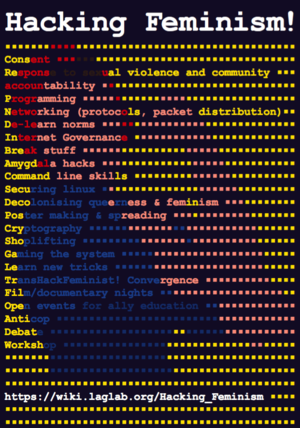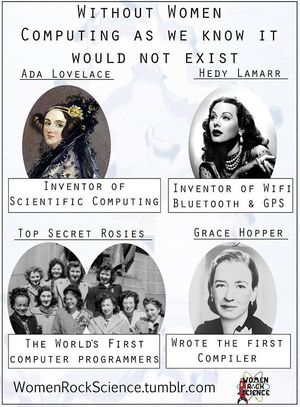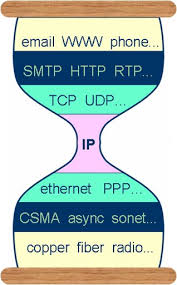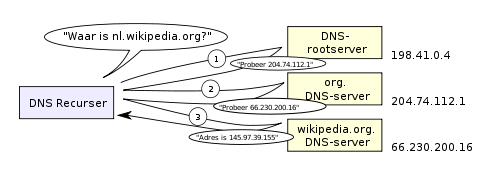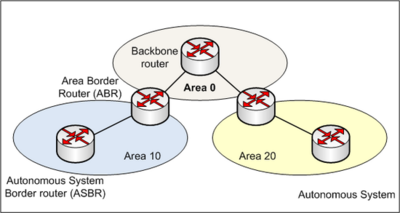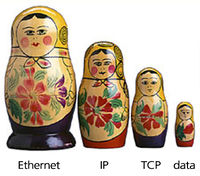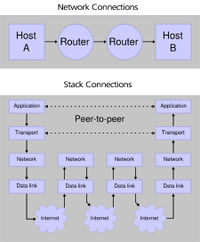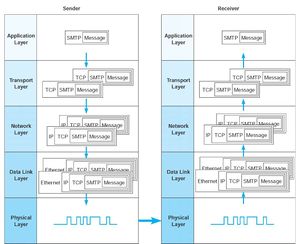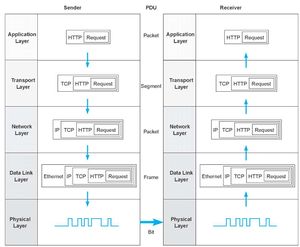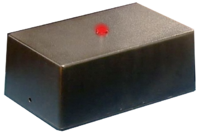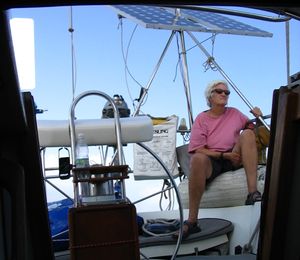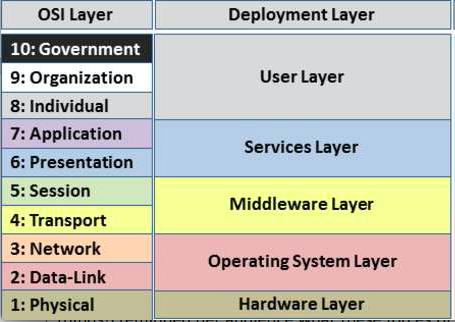Difference between revisions of "User:Becha/InternetPlumbing"
(→Overview) |
(→Description of OSI layers) |
||
| Line 113: | Line 113: | ||
(TODO: add ISC reference to Evi's wikipedia page!!) | (TODO: add ISC reference to Evi's wikipedia page!!) | ||
| − | == | + | ==Comparing OSI & TCP / IP layers== |
| − | + | Original borrowed from: https://en.wikipedia.org/wiki/OSI_model | |
| − | |||
| − | |||
{| class="wikitable" style="margin: 1em auto 1em auto;" | {| class="wikitable" style="margin: 1em auto 1em auto;" | ||
|- | |- | ||
| − | ! colspan=" | + | | TCP / IP Model |
| + | ! colspan="4" | OSI Model | ||
|- | |- | ||
| − | + | | Layer | |
| + | | OSI Layer | ||
! [[Protocol data unit]] (PDU) | ! [[Protocol data unit]] (PDU) | ||
| − | ! style="width:30em;" | Function | + | ! style="width:30em;" | Function |
! Examples | ! Examples | ||
|- | |- | ||
| − | ! rowspan=" | + | ! rowspan="2" | Application |
| style="background:#d8ec9b;" | 7. [[Application layer|Application]] | | style="background:#d8ec9b;" | 7. [[Application layer|Application]] | ||
| style="background:#d8ec9c;" rowspan="3" | [[Data (computing)|Data]] | | style="background:#d8ec9c;" rowspan="3" | [[Data (computing)|Data]] | ||
| style="background:#d8ec9c;" | <small>High-level [[API]]s, including resource sharing, remote file access, [[directory service]]s and [[virtual terminal]]s</small> | | style="background:#d8ec9c;" | <small>High-level [[API]]s, including resource sharing, remote file access, [[directory service]]s and [[virtual terminal]]s</small> | ||
| − | | [[Transport Layer Security|TLS]], [[FTP]], [[HTTP]], [[HTTPS]], [[SMTP]], [[Secure Shell|SSH]], [[Telnet]] | + | | [[Transport Layer Security|TLS]], [[FTP]], [[HTTP]], [[HTTPS]], [[SMTP]], [[Secure Shell|SSH]], [[Telnet]], BGP! |
|- | |- | ||
| style="background:#d8ec9b;" | 6. [[Presentation layer|Presentation]] | | style="background:#d8ec9b;" | 6. [[Presentation layer|Presentation]] | ||
| Line 138: | Line 138: | ||
| [[CSS]], [[GIF]], [[HTML]], [[XML]], [[JSON]] | | [[CSS]], [[GIF]], [[HTML]], [[XML]], [[JSON]] | ||
|- | |- | ||
| + | ! rowspan="2" | Transport | ||
| style="background:#d8ec9b;" | 5. [[Session layer|Session]] | | style="background:#d8ec9b;" | 5. [[Session layer|Session]] | ||
| style="background:#d8ec9b;" | <small>Managing communication [[Session (computer science)|sessions]], i.e. continuous exchange of information in the form of multiple back-and-forth transmissions between two nodes</small> | | style="background:#d8ec9b;" | <small>Managing communication [[Session (computer science)|sessions]], i.e. continuous exchange of information in the form of multiple back-and-forth transmissions between two nodes</small> | ||
| Line 147: | Line 148: | ||
| [[NetBIOS Frames protocol|NBF]], [[Transmission Control Protocol|TCP]], [[User Datagram Protocol|UDP]] | | [[NetBIOS Frames protocol|NBF]], [[Transmission Control Protocol|TCP]], [[User Datagram Protocol|UDP]] | ||
|- | |- | ||
| − | + | | Network / <br> Internet | |
| style="background:#eddc9c;" | 3. [[Network layer|Network]] | | style="background:#eddc9c;" | 3. [[Network layer|Network]] | ||
| style="background:#eddc9c;" | [[Network packet|Packet]] | | style="background:#eddc9c;" | [[Network packet|Packet]] | ||
| Line 153: | Line 154: | ||
| [[AppleTalk]], [[Internet Control Message Protocol|ICMP]], [[IPsec]], [[IPv4]], [[IPv6]] | | [[AppleTalk]], [[Internet Control Message Protocol|ICMP]], [[IPsec]], [[IPv4]], [[IPv6]] | ||
|- | |- | ||
| + | ! rowspan="2" | Link <br> layer | ||
| style="background:#e9c189;" | 2. [[Data link layer|Data link]] | | style="background:#e9c189;" | 2. [[Data link layer|Data link]] | ||
| style="background:#e9c189;" | [[Frame (networking)|Frame]] | | style="background:#e9c189;" | [[Frame (networking)|Frame]] | ||
| Line 164: | Line 166: | ||
|} | |} | ||
<!----- {{Clear}} -------> | <!----- {{Clear}} -------> | ||
| + | |||
| + | Cross-layer functions: | ||
| + | |||
| + | * ARP is used to translate IPv4 addresses (OSI layer 3) into Ethernet MAC addresses (OSI layer 2). | ||
| + | * Domain Name Service is an Application Layer service which is used to look up the IP address of a given domain name. Once a reply is received from the DNS server, it is then possible to form a Layer 3 connection to the third-party host. | ||
| + | * etc | ||
[[File:Osi-deployment-layers.png]] | [[File:Osi-deployment-layers.png]] | ||
| + | |||
| + | ==Owners, Developers, Dangers, Mitigations, Alternatives== | ||
| + | |||
| + | [[File:Osi-deployment-layers.png]] | ||
| + | |||
{| class="wikitable sortable" | {| class="wikitable sortable" | ||
| − | !Layer | + | |- |
| + | | | ||
| + | | | ||
| + | | | ||
| + | | | ||
| + | | | ||
| + | | | ||
| + | | | ||
| + | | | ||
| + | |- | ||
| + | | # | ||
| + | !Layer name | ||
!Example | !Example | ||
!Practically | !Practically | ||
| Line 174: | Line 198: | ||
!Developed by | !Developed by | ||
|Vulnerabilities/Dangers | |Vulnerabilities/Dangers | ||
| − | + | | Securing | |
| Alternatives | | Alternatives | ||
|- | |- | ||
| − | | | + | |10 |
| − | | | + | | |
| − | | | + | | |
| − | | | + | | |
| − | | | + | | |
| − | | | + | | |
| − | | | + | | |
| − | | | + | | |
| + | |- | ||
| + | |9 | ||
| + | | | ||
| + | | | ||
| + | | | ||
| + | | | ||
| + | | | ||
| + | | | ||
| + | | | ||
| + | | | ||
| + | |- | ||
| + | |8 | ||
| + | | | ||
| + | | | ||
| + | | | ||
| + | | | ||
| + | | | ||
| + | | | ||
| + | | | ||
| + | | | ||
| + | |- | ||
| + | ! rowspan="3" | Application layer | ||
| + | |7.3 -> skype | ||
| + | | | ||
| + | | | ||
| + | | | ||
| + | | | ||
| + | | | ||
| + | | | ||
| + | | | ||
|- | |- | ||
| + | |7.2 -> SMTP / email | ||
| + | | | ||
| | | | ||
| | | | ||
| Line 194: | Line 250: | ||
| | | | ||
|- | |- | ||
| + | | 7.1 HTTP | ||
| + | | web, WWW | ||
| + | | web sites! LoLCats! | ||
| + | | individuals, on their own servers! <br> blogs (blogspot?), mainstream media, hosting companies; corporations: Google, Facebook, Amazon... YouTube.. | ||
| + | | W3c, IETF | ||
| + | | censorship; silos; walled gardens; commercialization, consumerism; | ||
| + | | httpS, SSL, TLS; activism, digital human rights; associations of users; | ||
| + | | torrent! p2p! alternative social media! | ||
| | | | ||
| | | | ||
| + | |- | ||
| + | |6 | ||
| + | | Presentation | ||
| + | | HTML, CSS, JSON | ||
| | | | ||
| | | | ||
| Line 201: | Line 269: | ||
| | | | ||
| | | | ||
| − | |} | + | | |
| − | + | | | |
| + | |- | ||
| + | |5 | ||
| + | | Session | ||
| + | | BGP (actually layer 7...) | ||
| + | | routing: exchanging AS reachability info via gossip: based on trust & peering agreements! <br> physical routers by routers: Cisco/Juniper (commercial monopolists ;-) | ||
| + | | Large ISPs; Tier1 / Tier2 ; IXPs!! RIRs give out AS numbers | ||
| + | | "routing-wg" @ RIPE; *NOGs! (nano, nlnog, grnog; peering forums; Euro-IX); IETF; Open-Source community ; hackers | ||
| + | | "route hijacks", government regulation & takeover (killer switch), hierarchies; | ||
| + | | technically: BGPsec, IRR, RPKI; <br> politically: influencing governance | ||
| + | | p2p protocols, Betman [xx]; MPLS, SDN; Tor?! | ||
| + | | | ||
| + | |- | ||
| + | |4 | ||
| + | | Transport | ||
| + | | UDP -> DNS | ||
| + | | www.belastingdiest.nl | ||
| + | | User; Registrar, Registry, ccTLD, gTLD, ICANN, US government! | ||
| + | | DNS OARC, IETF, root-nameserver operators, ICANN, IGF/UN/ITU | ||
| + | | "balkanisation", US hegemony; internationalization; censorship; | ||
| + | | technically: DNSSEC, DANE ; Tor; <br> politically: participating in governance | ||
| + | | Alternative trees; blockchain (namecoin); etc | ||
| + | | | ||
| + | |- | ||
| + | |3 | ||
| + | | Network | ||
| + | | Internet | ||
| + | | ifconfig; 10.10.10.10, IPv6 | ||
| + | | no-one: IP addresses are "leased"! <br> (PI,PA,LIR,RIR,IANA,IETF) | ||
| + | | RIR PDP, IANA, IETF | ||
| + | | hierarchy, run-out, incompatibility, market forces; surveillance | ||
| + | | IPSec | ||
| + | | Blockchain? | ||
| + | | | ||
| + | |- | ||
| + | |2 | ||
| + | | Data-link | ||
| + | | Physical connections | ||
| + | | Ethernet cables, WiFi, fibers, satellites, under-sea cables | ||
| + | | Individuals, communities, ISP, "carriers", corporations, governments, | ||
| + | | Hackers, commercial companies, governments | ||
| + | | "ownership" models; hierarchy of server-client model; pollution & distraction of Earth; surveillance | ||
| + | | commoning; shared infrastructure; development of sustainable technologies (?!), recycling; awareness & activism | ||
| + | |Community WiFi, Project Loon, Drones | ||
| + | | | ||
| + | |- | ||
| + | |1 | ||
| + | |Physical | ||
| + | |HW - end user equipment | ||
| + | |Computer, tablet, phone... | ||
| + | |User | ||
| + | |Commercial companies: Apple, Siemens, Samsung... | ||
| + | |Un-ethical manufacturing, security backdoors, pollution caused by e-waste disposal, | ||
| + | |Hard: | ||
| + | |Open HW movement; fair-phone; DIY, Repair Cafes, fair-trade... | ||
| + | | | ||
| + | |-|} | ||
==Participate, take action, join== | ==Participate, take action, join== | ||
Revision as of 12:14, 3 April 2016
Lecture at Hacking Feminism
- 6 April 2016, 8PM
- By Becha
- https://wiki.laglab.org/Hacking_Feminism
Internet Plumbing
Internet Plumbing is a word-game with multiple layers of meaning (ha! a recursive pun ;-)
Series of Tubes
- https://en.wikipedia.org/wiki/Series_of_tubes
- http://www.salon.com/2012/05/28/tubes_what_the_internet_is_made_of/
- http://knowyourmeme.com/memes/series-of-tubes
- http://www.submarinecablemap.com/
Ubiquitous and complicated as plumbing?
- Internet as a utility
- just like "plumbing" (water & sewage), there is underlying "technology" to it, so complex, that no-one seems to grasp how all of it works
- 60% of the population of the planet does NOT have "teh Internets", and 30% does not have plumbing either (http://www.un.org/waterforlifedecade/sanitation.shtml)
Acronyms!
- TCP/IP
- IPv4, IPv6: Internet Protocol (IP) addresses
- NAT: Network Address Translation
- DNS: Domain Name System
- ASN: Autonomous System Number
- used for BGP routing (Border Gateway Protocol)
- IXP: Internet eXchange Point
- SMTP
- HTTP
- CDN
Basics
https://en.wikipedia.org/wiki/Border_Gateway_Protocol
Many many more resources: books, videos:
Links:
- http://en.flossmanuals.net/bypassing-censorship/ch006_chapter-1-how/
- https://en.wikipedia.org/wiki/Internet_protocol_suite
- http://what-when-how.com/data-communications-and-networking/network-and-transport-layers-data-communications-and-networking/
- http://what-when-how.com/data-communications-and-networking/network-models-data-communications-and-networking/
- http://www.laneye.com/network/how-network-works/mac-address-and-ip-address-relationship.htm
- https://www.amplicon.com/building/networking-principles.cfm#ip
- DNS & CDNs: Internet plumbing: Think globally, route locally, Mar 16th 2011, http://www.economist.com/node/21016766/print
Security, Privacy, Avoiding Censorship
- IPSec
- DNSSEC
- BGP security & plumbing:
- User Self-help:
Alternatives
MeshNet: "Hackers and philosophers building an utopia together": http://becha.home.xs4all.nl/hackers-philosophers-utopian-network-dec-2012-becha.pdf
November 2014: Nature will have the last word, on Future of Technology, RIPE69 https://wiki.techinc.nl/index.php/File:Nature-speaking-on-future_of_the_internet-RIPE69.pdf
UnCivilization: critical thinking about Internet & capitalism: https://lists.puscii.nl/wws/info/uncivilization
Playfull: Internet Simulator: https://github.com/nsec/the-internet
- Alternative Network Deployments: Taxonomy, characterization, technologies and architectures
https://www.ietf.org/id/draft-irtf-gaia-alternative-network-deployments-04.txt
- The Critical Engineering Manifesto: https://www.criticalengineering.org/
Overview
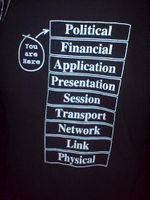 OSI Model T-shirt enhanced to include an 8th and 9th layer as defined by Evi Nemeth: https://en.wikipedia.org/wiki/Evi_Nemeth // https://www.isc.org/product/isc-9-layer-osi-model-cotton-t-shirt/
OSI Model T-shirt enhanced to include an 8th and 9th layer as defined by Evi Nemeth: https://en.wikipedia.org/wiki/Evi_Nemeth // https://www.isc.org/product/isc-9-layer-osi-model-cotton-t-shirt/
(TODO: add ISC reference to Evi's wikipedia page!!)
Comparing OSI & TCP / IP layers
Original borrowed from: https://en.wikipedia.org/wiki/OSI_model
| TCP / IP Model | OSI Model | |||
|---|---|---|---|---|
| Layer | OSI Layer | Protocol data unit (PDU) | Function | Examples |
| Application | 7. Application | Data | High-level APIs, including resource sharing, remote file access, directory services and virtual terminals | TLS, FTP, HTTP, HTTPS, SMTP, SSH, Telnet, BGP! |
| 6. Presentation | Translation of data between a networking service and an application; including character encoding, data compression and encryption/decryption | CSS, GIF, HTML, XML, JSON | ||
| Transport | 5. Session | Managing communication sessions, i.e. continuous exchange of information in the form of multiple back-and-forth transmissions between two nodes | RPC, SCP, NFS, PAP, | |
| 4. Transport | Segment (TCP) / Datagram (UDP) | Reliable transmission of data segments between points on a network, including segmentation, acknowledgement and multiplexing | NBF, TCP, UDP | |
| Network / Internet |
3. Network | Packet | Structuring and managing a multi-node network, including addressing, routing and traffic control | AppleTalk, ICMP, IPsec, IPv4, IPv6 |
| Link layer |
2. Data link | Frame | Reliable transmission of data frames between two nodes connected by a physical layer | IEEE 802.2, L2TP, LLDP, MAC, PPP, ATM, MPLS |
| 1. Physical | Bit | Transmission and reception of raw bit streams over a physical medium | DOCSIS, DSL, Ethernet physical layer, ISDN, USB | |
Cross-layer functions:
- ARP is used to translate IPv4 addresses (OSI layer 3) into Ethernet MAC addresses (OSI layer 2).
- Domain Name Service is an Application Layer service which is used to look up the IP address of a given domain name. Once a reply is received from the DNS server, it is then possible to form a Layer 3 connection to the third-party host.
- etc
Owners, Developers, Dangers, Mitigations, Alternatives
| # | Layer name | Example | Practically | Owner | Developed by | Vulnerabilities/Dangers | Securing | Alternatives | |
|---|---|---|---|---|---|---|---|---|---|
| 10 | |||||||||
| 9 | |||||||||
| 8 | |||||||||
| Application layer | 7.3 -> skype | ||||||||
| 7.2 -> SMTP / email | |||||||||
| 7.1 HTTP | web, WWW | web sites! LoLCats! | individuals, on their own servers! blogs (blogspot?), mainstream media, hosting companies; corporations: Google, Facebook, Amazon... YouTube.. |
W3c, IETF | censorship; silos; walled gardens; commercialization, consumerism; | httpS, SSL, TLS; activism, digital human rights; associations of users; | torrent! p2p! alternative social media! | ||
| 6 | Presentation | HTML, CSS, JSON | |||||||
| 5 | Session | BGP (actually layer 7...) | routing: exchanging AS reachability info via gossip: based on trust & peering agreements! physical routers by routers: Cisco/Juniper (commercial monopolists ;-) |
Large ISPs; Tier1 / Tier2 ; IXPs!! RIRs give out AS numbers | "routing-wg" @ RIPE; *NOGs! (nano, nlnog, grnog; peering forums; Euro-IX); IETF; Open-Source community ; hackers | "route hijacks", government regulation & takeover (killer switch), hierarchies; | technically: BGPsec, IRR, RPKI; politically: influencing governance |
p2p protocols, Betman [xx]; MPLS, SDN; Tor?! | |
| 4 | Transport | UDP -> DNS | www.belastingdiest.nl | User; Registrar, Registry, ccTLD, gTLD, ICANN, US government! | DNS OARC, IETF, root-nameserver operators, ICANN, IGF/UN/ITU | "balkanisation", US hegemony; internationalization; censorship; | technically: DNSSEC, DANE ; Tor; politically: participating in governance |
Alternative trees; blockchain (namecoin); etc | |
| 3 | Network | Internet | ifconfig; 10.10.10.10, IPv6 | no-one: IP addresses are "leased"! (PI,PA,LIR,RIR,IANA,IETF) |
RIR PDP, IANA, IETF | hierarchy, run-out, incompatibility, market forces; surveillance | IPSec | Blockchain? | |
| 2 | Data-link | Physical connections | Ethernet cables, WiFi, fibers, satellites, under-sea cables | Individuals, communities, ISP, "carriers", corporations, governments, | Hackers, commercial companies, governments | "ownership" models; hierarchy of server-client model; pollution & distraction of Earth; surveillance | commoning; shared infrastructure; development of sustainable technologies (?!), recycling; awareness & activism | Community WiFi, Project Loon, Drones | |
| 1 | Physical | HW - end user equipment | Computer, tablet, phone... | User | Commercial companies: Apple, Siemens, Samsung... | Un-ethical manufacturing, security backdoors, pollution caused by e-waste disposal, | Hard: | Open HW movement; fair-phone; DIY, Repair Cafes, fair-trade... |
